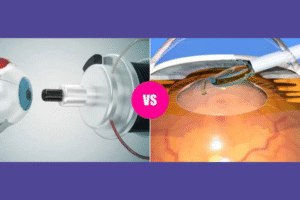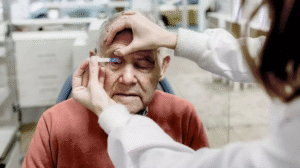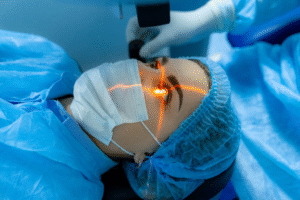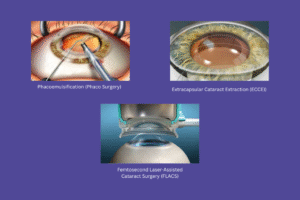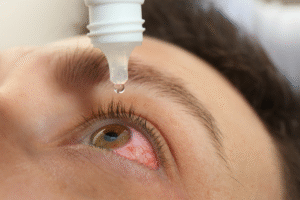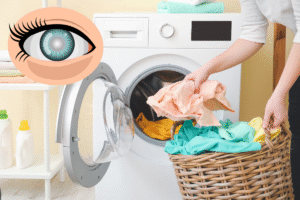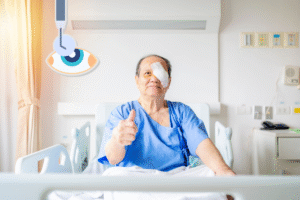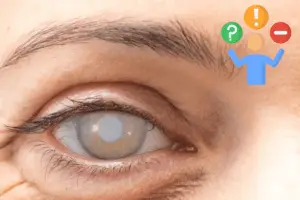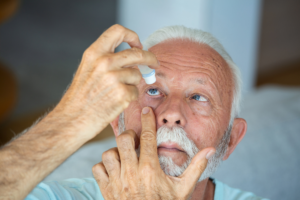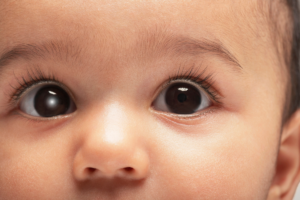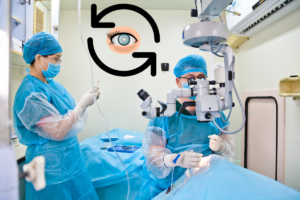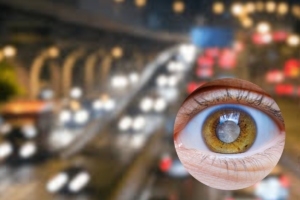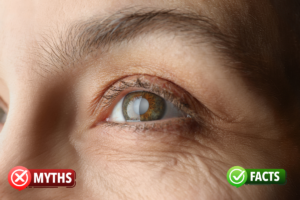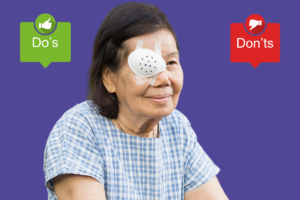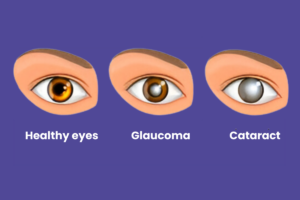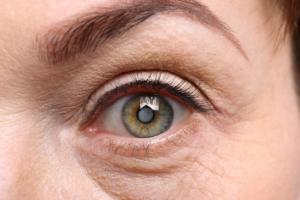Showering and Washing hair after cataract surgery
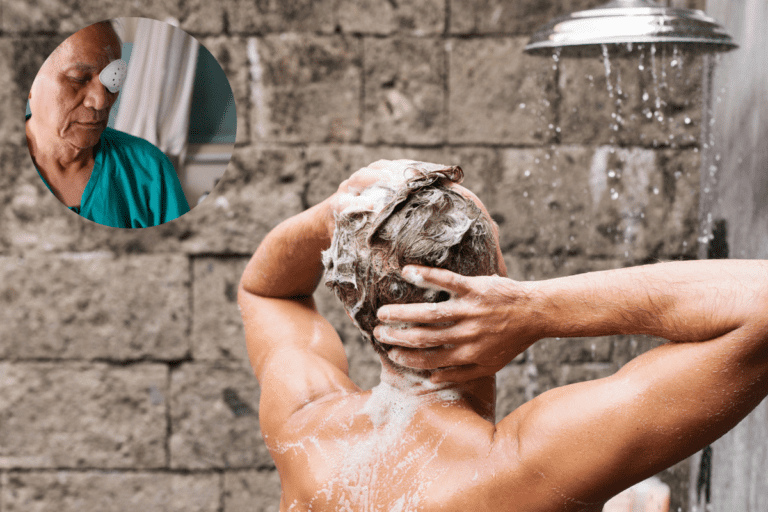
Cataract surgery is a quick and effective procedure that restores vision by replacing the clouded lens with an artificial intraocular lens (IOL). While recovery is generally smooth, patients must follow specific aftercare instructions to avoid complications. One common concern is whether it is safe to shower and wash hair after cataract surgery. In this guide, we will discuss the best practices to keep your eyes safe while maintaining hygiene during the recovery period.
Table of Contents
ToggleWhen can you shower after cataract surgery?
You can typically take a shower the day after your cataract surgery, but there are important precautions to follow to prevent water, soap, or shampoo from getting into your eyes.
Guidelines for showering safely after cataract surgery:
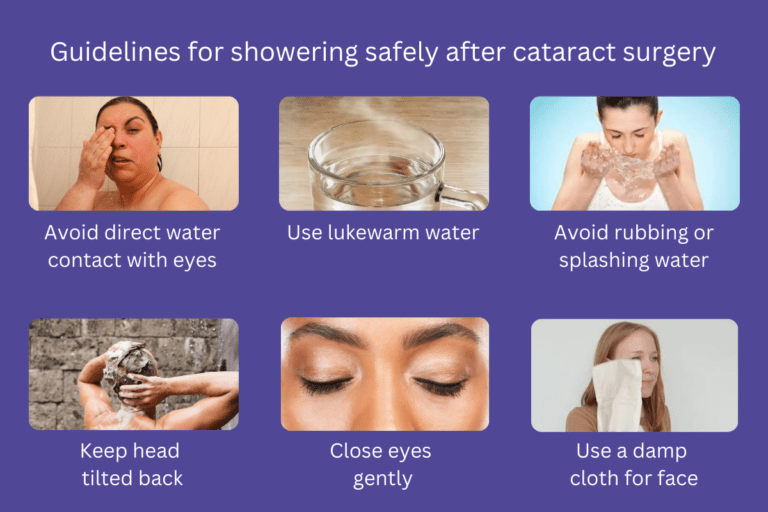
- Keep water away from your eyes: Avoid direct water contact with your operated eye for at least one week to prevent infection or irritation.
- Use lukewarm water: Hot steam can irritate your eyes, so stick to lukewarm or mildly warm water.
- Avoid rubbing or splashing water: Be gentle while rinsing your face to avoid accidentally touching your eye.
- Keep your head tilted back: When rinsing your hair, tilt your head backward so water flows away from your eyes rather than into them.
- Close your eyes gently: While washing, keep your eyes closed as much as possible to minimize exposure.
- Use a damp cloth for your face: Instead of splashing water, use a soft, damp cloth to clean your face.
When can you wash your hair after cataract surgery?
It is generally safe to wash your hair within 24-48 hours after surgery, but you should take extra precautions to avoid getting shampoo or water into your eyes.
Safe hair washing tips after cataract surgery:
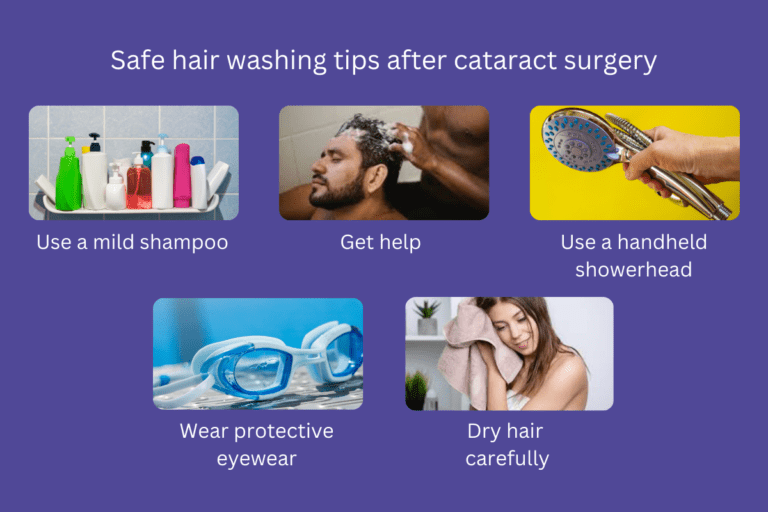
- Use a mild shampoo: Harsh chemicals can irritate your sensitive eyes, so opt for a gentle, fragrance-free shampoo.
- Get help if possible: If you have someone to assist you, they can wash your hair while keeping water away from your face.
- Use a handheld showerhead: This gives better control over the water flow and reduces the risk of water splashing into your eyes.
- Wear protective eyewear: Some patients use swimming goggles or a shower shield to prevent accidental water exposure.
- Dry hair carefully: Pat your hair dry gently with a towel instead of rubbing vigorously to avoid any pressure on your eyes.
Why exercise caution after cataract surgery?
Your eye needs a calm and sterile environment to heal. Exposure to water, pressure, or contaminants can delay healing or cause complications.
Here’s why caution is key:
- Infection risk: Tap water may contain bacteria or microorganisms.
- Chemical irritation: Shampoo, soap, and skincare products may cause stinging or redness.
- Delayed healing: Rubbing or applying pressure may disturb the intraocular lens placement or healing incision.
Why is it important to avoid water in the eyes after cataract surgery?
After cataract surgery, your eyes are in a healing phase, and any exposure to water may increase the risk of infection or irritation. Here’s why you should be careful:
- Risk of infection: Tap water contains bacteria that could cause an infection in the healing eye.
- Irritation from soap/shampoo: Harsh chemicals from shampoo, soap, or face wash can cause burning or discomfort in the eye.
- Accidental pressure on the eye: Rubbing or touching the eye while showering can disrupt the healing process.
Typical mistakes to avoid while recovering
Avoiding these common errors can help ensure a smooth recovery:
- Rubbing your eye: Even accidentally rubbing can interfere with healing.
- Getting water in your eye: Can lead to infection or irritation.
- Skipping medications: Eye drops are crucial for healing and infection control.
- Missing follow-up appointments: Regular checkups detect issues early.
- Ignoring symptoms: Report pain, redness, or blurry vision to your doctor immediately.
- Lifting heavy objects or bending down: This can increase eye pressure in the early days.
- Resuming skincare or makeup too early: Wait until your doctor confirms it’s safe.
Additional eye care tips post-cataract surgery
In addition to safe showering and hair washing, follow these general care tips:
- Avoid swimming for at least 2 weeks: Pools, hot tubs, and natural water bodies can carry bacteria that increase the risk of infection.
- Wear protective glasses or an eye shield: Your doctor may recommend wearing an eye shield while sleeping and during certain activities.
- Follow your doctor’s medication plan: Use prescribed eye drops regularly to aid healing and prevent infections.
- Attend follow-up appointments: Regular check-ups help ensure proper healing and address any concerns early on.
Conclusion
Maintaining hygiene while recovering from cataract surgery is important, but it’s crucial to take precautions to protect your healing eye. You can shower the day after surgery with care and wash your hair within 24-48 hours while avoiding direct water and soap exposure to your eyes. Following these guidelines will help ensure a smooth recovery and reduce the risk of complications.
If you have any concerns about your post-surgery care, consult your eye doctor for personalized advice.
At Krisha Eye Hospital, we prioritize patient care and safety after cataract surgery. If you have any questions, feel free to reach out to us.
Author bio
Dr. Dhwani Maheshwari, an esteemed ophthalmologist with over 10 years of experience, leads Krisha Eye hospital in Ahmedabad with a commitment to advanced, patient-centered eye care. Specializing in cataract and refractive surgery, Dr. Maheshwari has performed more than a thousand successful surgeries. Her expertise lies in phacoemulsification, a technique recognized for its precision in cataract treatment.
Dr. Maheshwari’s educational journey includes an MBBS from Smt. NHL MMC, a DOMS from M & J Institute of Ophthalmology, and a DNB in Ophthalmology from Mahatme Eye Bank Eye Hospital, Nagpur. She also completed a fellowship in phacoemulsification at Porecha Blindness Trust Hospital, further enhancing her surgical skills. In addition to her work at Krisha Eye Hospital, Dr. Maheshwari serves as a consultant ophthalmologist at Northstar Diagnostic Centre.
Under her leadership, Krisha Eye Hospital aims to bring all superspecialties under one roof, offering comprehensive eye care solutions for all vision needs.
FAQs
Yes, you can take a bath, but be cautious to avoid splashing water on your face and eyes. A sponge bath may be a safer alternative for the first few days.
You can use a mild shampoo after 24-48 hours, but be very careful to keep it away from your eyes.
If water enters your eye, do not rub it. Instead, gently dab the area with a clean tissue and inform your doctor if you experience any irritation.
Yes, but use it on a low heat setting and avoid directing hot air toward your eyes.
If possible, wearing a protective eye shield can help prevent accidental exposure to water.
For the first week, use a damp cloth to clean your face instead of splashing water directly.
Avoid using facial cleansers near your eyes for at least one week to prevent irritation or infection.
Most patients can resume normal showering after one week, but it’s best to follow your doctor’s advice.
Stick to mild, non-irritating shampoos and consult your doctor before using any medicated or herbal products.
Yes, baby shampoo is often a good choice since it is mild and less likely to cause irritation, but still avoid direct contact with your eyes.
It’s best to avoid bending over for the first week to prevent putting pressure on your healing eye. Instead, try tilting your head backward.
If you accidentally rub your eye, avoid further touching and monitor for any discomfort, redness, or changes in vision. Contact your doctor if you notice any issues.
Yes, dry shampoo can be a good alternative to avoid water exposure in the first few days after surgery.
You can gradually resume your skincare routine after about a week, but avoid using products near your eyes until fully healed.





